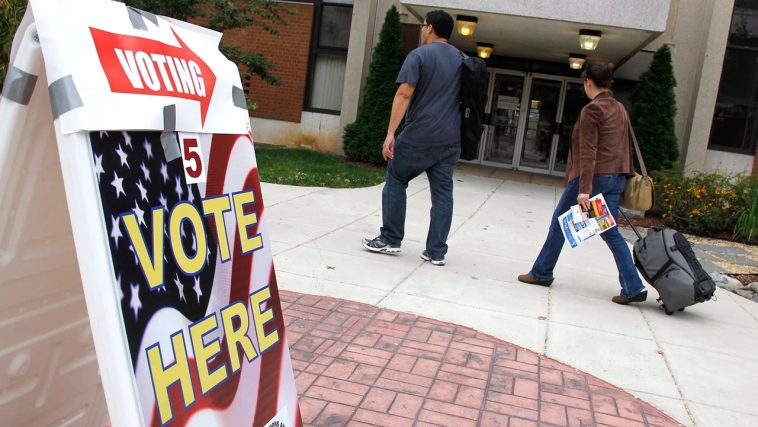A ruling issued by a federal judge has rejected a legal challenge against a piece of statute in the capital city, Washington, D.C., that gives the right to non-citizens in the area to participate in local elections. The lawsuit fell through due to the inability of the seven involved plaintiffs to prove substantial detriment due to the operative law. The magistrate responsible for the decision, Amy Berman Jackson, was originally appointed by former President Obama.
The aggrieved parties of this legal showdown are all U.S. citizens who had their voter registrations in D.C. The law under scrutiny is known as the ‘Local Resident Voting Rights Amendment Act of 2022.’ The litigants voiced disapproval over this law, citing an alleged violation of their rights as enshrined in the Fifth Amendment of the U.S. constitution. This novel statute came to be part of the D.C. laws after the city’s Council passed it in 2022.
The innovative aspect of this legislation was that it abolished the pre-existing mandate of citizenship as a necessity for involvement in local municipal elections. Exclusive to the domain of local ballots, the law endows noncitizen residents of the country’s capital with the ability to cast their vote, leaving out federal-level voting entirely. This is clearly observed in the documents pertaining to the law.
This law assures the right to vote in a range of matters, from the selection of local leadership figures to the decision-making processes related to local initiatives, referenda, recalls, or changes to the city’s charter. It’s worth noting that the reach of the law is not confined merely to voting rights. It also allows non-national residents to contest for different roles within the D.C. government and to contribute as members of the city’s Board of Elections, as illustrated in the judicial documents.
The litigation against the Board of Elections in D.C. was lodged in light of the supposed vote dilution effect that this law would create. In their argument, the plaintiffs claimed that the ‘voting power of every U.S. citizen voter’ would diminish in the capital city due to the newly minted law.
A strong line of reasoning presented by the litigants revolved around the infringement of their fundamental democratic right to vote caused by expanding this right to non-nationals. They further alleged the Act introduced divisive treatment towards both U.S. nationals and those who are originally from the country and living in the capital, besides challenging the ‘constitutional authority for citizen self-governance.’
The relief sought from the judicial tribunal by the plaintiffs was twofold. They requested orders that would suspend the registration of non-nationals for voting and also halt the inclusion of votes cast by such entities. The plea sat on their premise that voting rights are an exclusive privilege of nationals.
Notwithstanding these arguments, Judge Jackson’s order maintained that the claimants fell short in demonstrating that the implementation of the law had resulted in any diminishing of their rights or any tangible disadvantage. In her words, the existing law has not ‘taken away or diminished’ anything from the plaintiffs.
She also posited that while the plaintiffs might disapprove, on moral grounds, of the rule allowing migrant residents to participate in voting, it doesn’t alter the weight or treatment of their own votes in any shape or form. She further asserted that they were not losing any form of representation, nor was there any noticeable discriminatory gerrymandering aimed at nationals. The ruling concluded that the plaintiffs were ‘merely placing forward a generic grievance’.
Noteworthy among these plaintiffs is Stacia Hall, who ran on the Republican ticket for the Mayor’s position in D.C., but was defeated by Muriel Bowser, a Democrat, in 2022. Another is Ralph Chittams, who was a Republican candidate for an at-large seat on the City Council back in 2018, as reported by The Hill.
Following its enactment, the controversial D.C. law stirred up some trouble in the corridors of Capitol Hill. Last year, the House of Representatives made a move to express derision for the law and its related penal code by passing a pair of resolutions.
Making use of the authority bestowed by the D.C. Home Rule Act to Congress, the House tried to prevent the capital from putting into effect the controversial rules. However, their plans hit a snag when the Senate didn’t schedule a vote on the House’s measure within the designated 30-day period. The lack of Senate action led to the D.C. law fully coming into effect.



